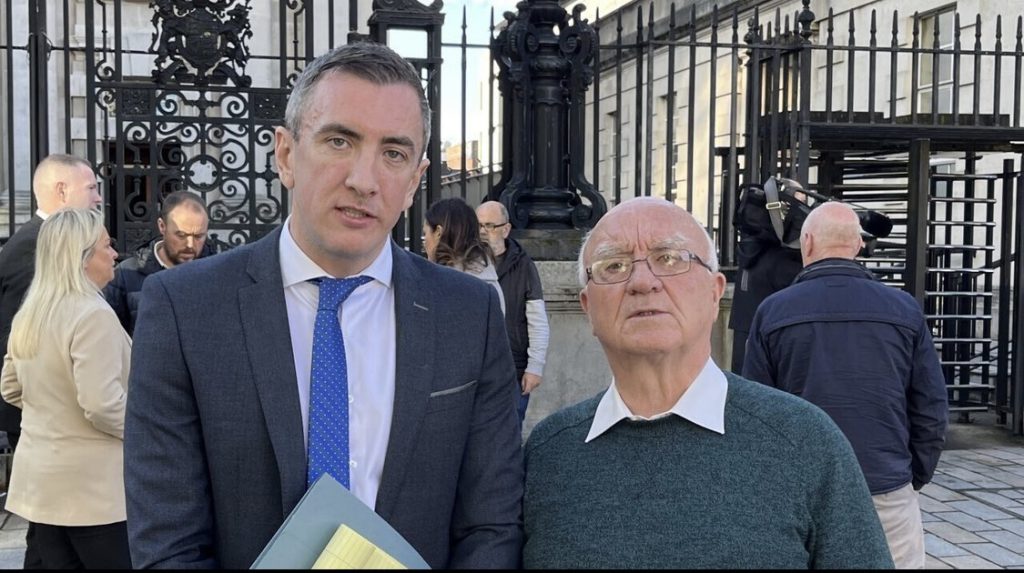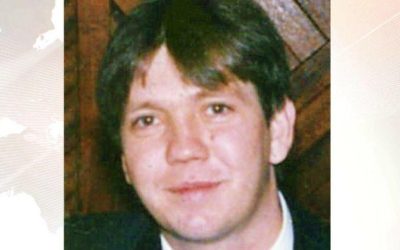
A bartender who survived a fatal loyalist gun attack on a village pub more than 30 years ago is to be awarded £10,000 in damages as a result of the delayed investigation, a High Court judge ruled today.
In what is understood to be the largest award of damages for a delayed investigation in this jurisdiction, Mr McEvoy’s case sets a helpful precedent in holding state agencies to account, when the delay results in a breach of human rights.
John McEvoy was awarded the payout for police delays in carrying out an effective investigation into the shootings at the Thierafurth Inn in Kilcoo, Co Down. One customer, 42-year-old Peter McCormack, was murdered and three others seriously wounded when a UVF gang burst in and opened fire during a darts tournament in November 1992.
Mr McEvoy, who was on duty in the bar that night and suffered post-traumatic stress disorder, challenged the PSNI Chief Constable over an alleged failure to properly examine circumstances surrounding the gun attack. In October last year Mr Justice Humphreys held police were in breach of a legal duty to carry out a human rights-compliant probe within a reasonable time. He found that new material within a watchdog report and a documentary film which named suspects represented plausible evidence of significant state collusion.
Returning to the case today, the judge decided Mr McEvoy should be paid compensation for the identified breach of obligations within the European Convention on Human Rights. Mr Justice Humphreys ruled: “I have concluded that, in addition to the findings in the primary judgment and the declaratory relief which he has obtained, an award of £10,000 damages is necessary in order to afford just satisfaction to the applicant.”
Proceedings centred on information about suspected collusion between members of the security forces and the UVF operating in the south Down area at that time. It followed the publication in 2016 of a Police Ombudsman report into the Loughinisland massacre.
In that attack loyalist gunmen murdered six Catholic men watching a World Cup football match in June 1994. A film on the Loughinisland killings, No Stone Unturned, named suspects and strengthened the case for a fully independent probe, it was contended. One of those referred to in the documentary as Person A was allegedly linked to the Thierafurth Inn attack. Even though the PSNI’s Legacy Investigation Branch (LIB) is to re-examine the circumstances surrounding the Thierafurth Inn shootings, Mr McEvoy’s lawyers claimed there will be an unlawful delay of several years.
The court heard the attack was 542nd in a queue within the LIB’s case sequencing model, with no indication of when it will be considered due to limited resources. Last year, the court held that the new material casts real doubt on the ability of the original RUC investigation to bring those responsible to justice. Although the judge found nothing to suggest the LIB investigation will be ineffective, he pointed out that the new material has been in the public domain for up to six years without prompting any action by the state. Welcoming the award of damages to his client, solicitor Gavin Booth of Phoenix Law said: “This is a clear indication by the court that the PSNI have failed the survivors of the Thierafurth Inn.
“We hope now that an immediate investigation will begin into all the allegations of collusion in south Down.”
Mr Booth added: “We will further be seeking a ring-fenced investigation that will not be halted by any legacy legislation.”




